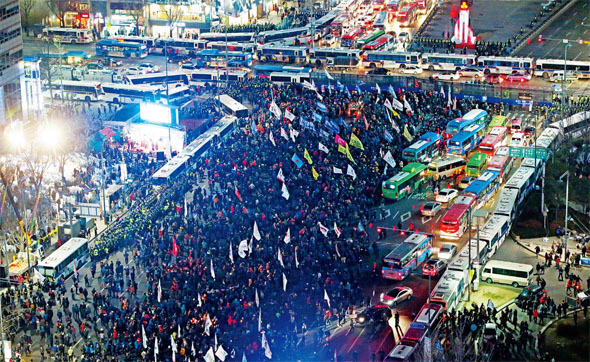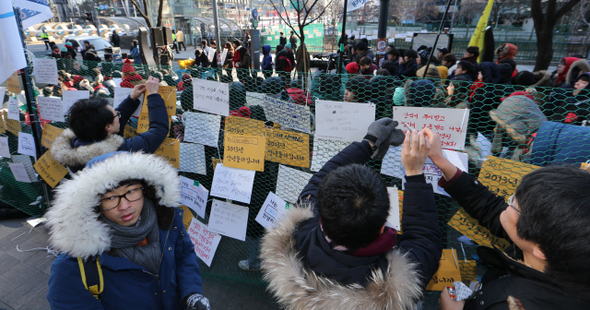 |
Protestors from the 1st General Strike Resolution Assembly for Blocking Privatization, Crushing Labor Oppression, and Achieving Victory in the Railroad Strike, block the road in front of Gwanghwamun Square in central Seoul in subzero temperatures, Dec. 28. (by Kim Bong-gyu, staff photographer)
|
Striking railway workers are getting support from students and regular people tired of the government’s uncommunicative style
By Song Ho-kyun, Bong Jun-ho and Lee Jae-uk, staff reporters |



No comments:
Post a Comment